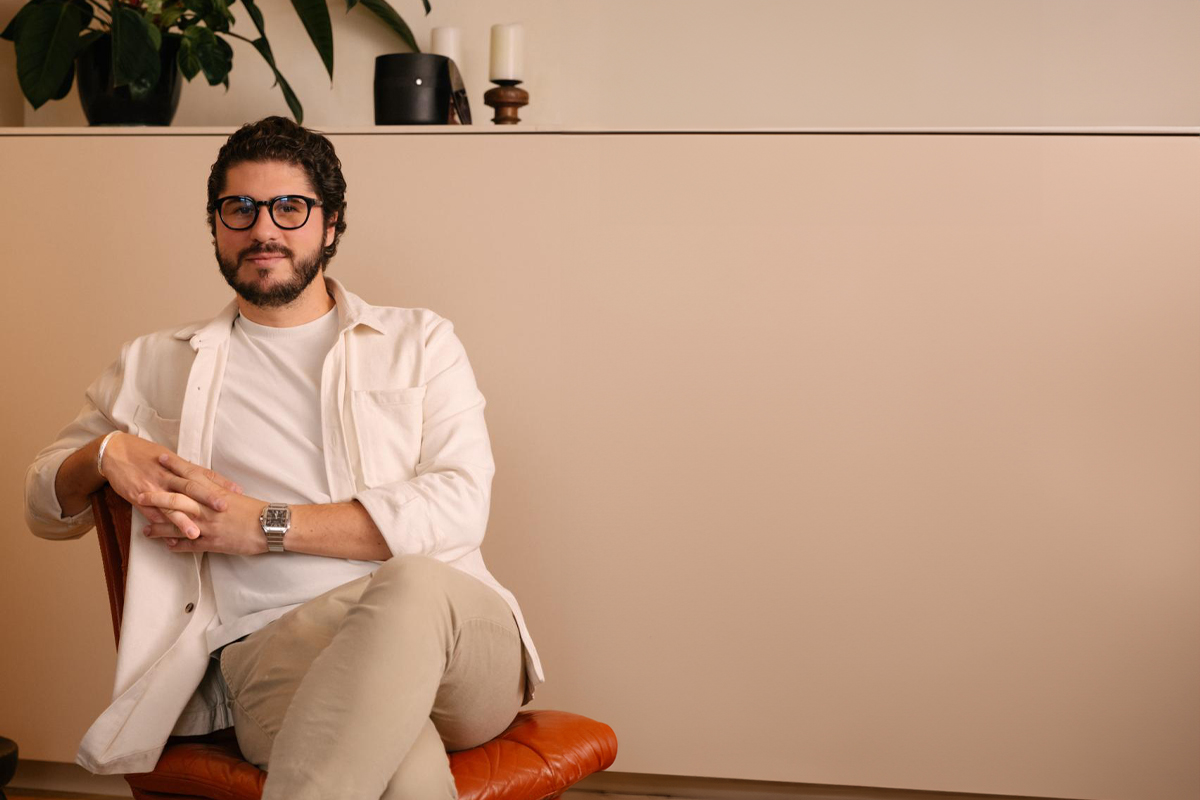Sebastian Löffler graduated from Les Roches Marbella in June 2017. The world of hospitality looked very different back then, but Sebastian has given us his thoughts on the current crisis situation and how the luxury hospitality sector can manage its recovery.
As the COVID-19 pandemic continues to affect the tourism industry on all continents, most of the world’s luxury properties remain closed for business. Behind these closed doors, leaders are attempting to manage the impact of this economic crisis.
While there are thousands of articles about sales and marketing managers advising hoteliers on how to adjust rates and how to communicate with their clients, few are attempting to predict what the actual operation of a luxury property will look like once they resume. A lot will change.
“Scenario planning should be the top priority for those trying to come out of this crisis stronger.”
Scenario planning should be the top priority for those trying to come out of this crisis stronger. If you are willing to outline the most probable framework of a hotel operation, its clients, and their demands, you will be more likely to act and adapt rather than to react to the new circumstances. As is common in crises, the most active, skilled, and innovative are the ones who will come out stronger on the other side.
This article looks at five clear changes the industry will face in the immediate term; and includes some food for thought on how to adapt and innovate.
1. New cleanliness and hygiene protocols
Cleanliness has long been one of the five pillars by which hotels are evaluated on most review platforms. However, it will start to become an even larger component of a traveler’s decision-making process when booking his or her next trip. The Singapore government recently launched a new audit system that awards hotels an ‘SG Clean’ stamp – free of charge – as a visible proof that they follow seven crucial hygiene standards suggested by the health ministry.
Singapore, among other Asian countries, has demonstrated itself to be ahead on innovations and the competent management of the COVID-19 pandemic. Thus, we will likely see similar hygiene agencies in other parts of the world (governmental and non-governmental).
Recently, I joined a Forbes Travel Guide Housekeeping Training. The trainer pointed out how luxury housekeeping service is best when invisible: never physically seeing a room/public area attendant, but acknowledging the tasks they completed. This trend will be inverted: housekeeping will become more visual than ever. Someone will need to wipe down and disinfect doorknobs and elevator panels every couple of minutes. Clients will want to see their room attendant following a certain hygiene protocol when entering their room.
You will want your hotel to lead this trend to play to your customer’s emotions and make them feel safe. A manager will have to be appointed to launch this initiative and to ensure its efficiency. The standards and measures taken will need to be conveyed to your clients, during the marketing process, pre-arrival and throughout their stay.
2. Adjustments to target markets
Younger generations will take risks and travel earlier than seniors. Millennials are the least risk-averse and are already taking advantage of cheap travel deals resulting from the pandemic. Travel restrictions will continue to be in place. Some people will be stuck in a certain part of the world; others will escape their home as the pandemic will pose an unequal risk in different geographical areas. These aspects suggest that the clientele you will welcome to your property will be altered when compared to the past 12 months.
Most industry leaders share a consensus on the first trend resulting from the pandemic: a boom in domestic and regional travel. As of April 20th (when I write), 90% of mainland China properties have now reopened. Their average occupancy is currently at 30% – all consisting of domestic guests. In addition, Germany’s Minister-President of Bavaria, Markus Soeder, urged Germans not to book any international travel, but to plan this year’s summer vacation domestically.
It becomes evident that leaders of luxury properties will have to be reflective and ask themselves tough questions concerning market segmentation. Should they allow children in a property with a no-child policy in order to attract multi-generational families wanting to stay together in these uncertain times? Should a South Florida resort initially target short stay clients from North America also open up their marketing strategy and communicate to Asians who are looking for a resort to settle down in and work from?
“I believe it is important to keep two things in mind here: You want your highest-level products (largest, most spacious suites and villas) readily available; and you want them to be in pristine conditions and up to the best technological standards. “
Looking at the hotel market as a whole, getting through the period of no income at all will already shrink the landscape of luxury properties. Some will not be able to recover from the dramatic economic impact. The remaining hotels will have to adapt to a shortage of clients in the market in the first 12 months.
3. Increased demand for the highest-level products
As hotels will re-open and demand will be low, properties will attempt to use the downtime to reduce costs and increase the efficiency of the facility and staffing. Hotels will be shutting down floors to reduce costs. Engineering teams will conduct general maintenance programs in their downtime.
I believe it is important to keep two things in mind here: You want your highest-level products (largest, most spacious suites and villas) readily available; and you want them to be in pristine conditions and up to the best technological standards.
And here is why: travelers will try to avoid dense and crowded areas like airports and airplanes as much as possible. Luxury travelers, with greater spending power, will choose to get away from geographically unstable areas and move to hotels. As a result, the average duration of a stay will increase drastically. But not only will guests stay much longer, but they will also spend more time in their rooms. They will work in them, they will exercise in them, and they will communicate with the outside world in them.
As this comes to pass, the demand for spacious rooms with outdoor areas will increase. Ask yourself, if you were to spend four weeks in the south of Spain in August, and you are not yet able to use the communal hotel facilities and local amenities, would you want to spend your time in a standard room without a balcony?
Even if it is a complimentary upgrade, creating brand loyalty with existing and new customers will be crucial in the coming months.
4. Automation will be unavoidable
This might seem obvious, and the move towards automation is already well underway. Nonetheless, the current situation suggests an acceleration. Self-service technologies have recently been pushed to an extreme, such as the Smart Lyz Hotel in China, offering pre-arrival to post-departure without human interaction. The luxury sector has been lagging in this transformation, arguing on the benefits of highly personalized services. But again, ask yourself, during your next hotel stay, do you want to have a butler (who just served several other guests) in your personal space unpacking your suitcase? Will you decide to add another interaction by passing by the desk to check-out or just have your bill emailed to you?
From a management perspective, this will be a hard decision to make. Embracing automation in a time where bringing back job opportunities feels like your social responsibility is a tough moral clash. But in reality, the long-term safety and access issues this pandemic will leave behind can only be approached by automation. And, as always, you will want to be ahead of your competition.
5. Service expectations will increase
Isadore Sharp (Founder and Chairman of Four Seasons Hotels and Resorts) said the following on luxury hotels during a crisis, “How would customers feel in this period of increased tension and decreased confidence if the service they would now be more than ever dependent on was no longer reliable? Guests will be looking for reassurance, but employees will have to work harder to ascertain their comfort level and service will have to be even more flexible and intuitive.”
Inspiring confidence in guests that the level of service your property provides is at the highest level will be key. As we come out of this crisis, top talent will be available, and they will be contesting for fewer positions in a highly competitive landscape. Many of them will use the downtime to improve their skills through online courses and studies to stand out.
Instead of cutting back on labor costs, hiring some of the greatest talents in the field could elevate your operation. Using these exceptionally skilled leaders to train your associates will increase confidence in your employees, which will reflect on your guests’ experiences.
Be aware, hotel guests will not be the only demographic with greater anxiety. Employees working in the setting of a luxury hotel will expose themselves to risks, too. Mental health challenges of different types will arise after weeks of quarantine. Having great leaders that inspire confidence in your associates will likely be your greatest asset in the uncertain future.
· Many thanks to Sebastian for contributing his thoughts. You can find more insights and discussions about the hospitality industry post-COVID-19 in our current program of webinars. Click here for more details
· You can connect with Sebastian via LinkedIn here



